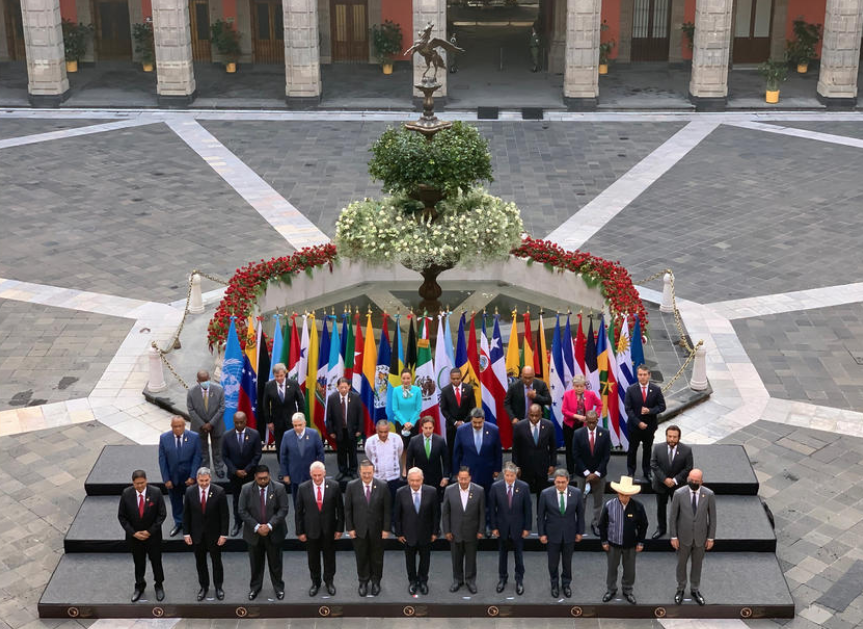The Russian invasion of Ukraine has generated a rearrangement of international relations and a worsening of the pre-existing animosities between the major blocs of the North. The global South, on the other hand, has remained relatively distant from the growing polarization, and Latin America has generally positioned itself along these lines. However, despite the distances, the reverberations of the crisis are so massive that it is impossible not to wonder what impact the crisis will have on the region.
One of the most relevant questions is the one that asks how the “return of geopolitics” and the “end of globalization” could impact inter-American relations. More specifically, whether the current disruption of supply chains composed of production and distribution nodes scattered around the world will lead to a rearrangement of the Inter-American Dialogue.
This question is not new. With the pandemic, the idea that self-sufficiency might not be so far-fetched, given the difficulties in obtaining sanitary supplies, had already resurfaced. And today, that concern reappears under the guise of distrust in supply chains whose production and distribution nodes are located in “enemy countries”.
The resurgence of “regional spaces”.
It is as a result of this problem that the international scene has seen a resurgence of the importance of “regional spaces” based on a commonwealth of ideas, political postulates, and, to a certain extent, common cultural features. All this is a condition for greater and better economic integration. A manifestation of this concern came to light during the recent visit of Guillermo Lasso, President of Ecuador, to Argentina, where both presidents spoke in favor of a reconstruction of the Latin American regional space, alluding to their specific political differences, but above all emphasizing the common points.
Unfortunately, in the case of Latin America, this “regional space” is very deteriorated, and a great effort will be required to rebuild the narrative of integration. Even more so if to these purposes is added the ambition to revive the Inter-American dialogue, taking into consideration that the process of convening the IX Summit of the Americas, to be held in Los Angeles, USA in June 2022, is in full swing.
The Summit already has a well-defined agenda, conducive to rethinking relations with the North, as it is convened to “build a sustainable, resilient and equitable future”. The question is whether the political context in which the meeting takes place should change its tone. For this, it seems to us, there are some duties to be fulfilled on both sides.
In the case of the Biden administration, the time has come to reinterpret the meaning of “being back” after the Trumpist chaos that the administration proclaimed when it took over the reins of government. So far, that comeback has been aimed primarily at repairing relations with North Atlantic and Pacific partners. Based on a notion of the traditional liberal international order, which gives primacy to developed countries. Its vision of how to articulate the South, and especially the Western hemispheric axis, has not been as clear-cut.
The idea would be for this vision of the Biden administration to change and include a different view of the South. One in which the Western hemispheric space is strengthened and the issue of integration is reconsidered, given the crisis in the supply chain and the return of geopolitics. A change that implies a different approach to inter-American relations with a more empathetic approach to the priorities of the countries in the region.
Historically, the issues on the Inter-American agenda are based on a list drawn up by the North, based on its governing bodies’ analysis of the Latin American reality. However, this new vision should integrate the interests of Latin American governments and civil society organizations through a new form of active listening.
Obviously, a univocal voice cannot be expected from Latin America and the Caribbean, since the inter-American dialogue is attended by a great diversity of countries, including the English-speaking, Dutch-speaking, and French-speaking Caribbean countries. However, there are two points that should be emphasized: the first one is that China’s great influence should be put into perspective, safeguarding relations with the Asian power, so that trade relations and investments are given their due value; another point is that the region should make a clear and united statement regarding democratic principles, human rights and respect for freedoms.
Regarding this last point, it would be desirable to change the way in which the region approaches the idea of the liberal international order, seeing it less than a sort of pseudonym for neoliberal globalization and more as the type of the multilateral order that offers the best conditions for safeguarding democracy, which is a more desirable asset than the alternatives offered by the realpolitik of the powers with authoritarian traits.
For a long time, the Inter-American Dialogue has been a sort of “self-exclusion” of the Latin American countries themselves. As if the spokespeople of the international liberal order were only the liberal democracies of the North, when, since the third wave of democratization at the end of the last century, the region has, in fact, good credentials to advocate international relations based on such principles and from the perspective of the global South.
Translated from Spanish by Janaína Ruviaro da Silva













